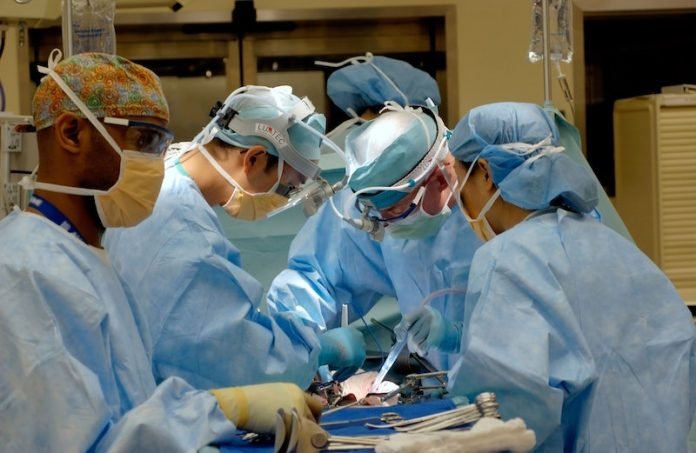
In a new study, researchers found that surgery should be delayed for seven weeks after a COVID-19 diagnosis.
They found that surgery that takes place between 0 and 6 weeks after diagnosis is linked to increased death risk.
The research was conducted by a team at the University of Birmingham and elsewhere.
It is known that infection with COVID-19 during surgery increases mortality, and international guidelines recommend surgery should be delayed for patients testing positive for COVID-19.
In the study, the team tests 140,231 patients (1,674 hospitals, 116 countries) undergoing surgery in October 2020.
Participating hospitals included all patients undergoing a surgical procedure.
Following a delay of 7 weeks or more, patients with ongoing COVID-19 symptoms (6.0%) had higher mortality than patients whose symptoms had resolved (2.4%) or who had been asymptomatic (1.3%).
The team found that patients operated 0-6 weeks after SARS-CoV-2 infection diagnosis are at increased risk of death, as were patients with ongoing symptoms at the time of surgery.
They recommend that whenever possible surgery should be delayed for at least 7 weeks after a positive COVID-19 test result, or until symptoms resolve if patients have ongoing symptoms for 7 weeks or more after diagnosis.
The researchers say that decisions regarding delaying surgery should be tailored for each patient, since the possible advantages of delaying surgery for at least 7 weeks following SARS-CoV-2 diagnosis must be balanced against the potential risks of delay.
One author of the study is Dr. Dmitri Nepogodiev. The study is published in Anaesthesia.
Copyright © 2021 Knowridge Science Report. All rights reserved.



